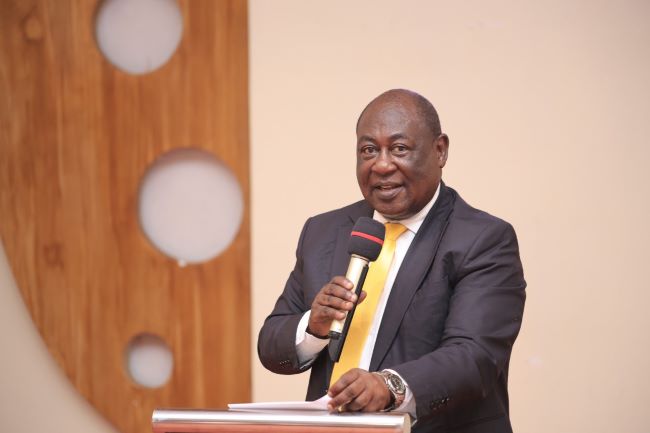MBARARA CITY, November 23, 2024 – The Intergovernmental Authority on Development [IGAD] has partnered with Uganda’s Ministry of Lands to facilitate community consultations as part of the review of Uganda’s National Land Policy, 2013.
The announcement was made last week during a consultative conference focused on land policy reform, which brought together representatives from 18 districts in the Kigezi and Ankole subregions at Hotel Triangle in Mbarara City.
In her address to the participants, Joselyn Bigirwa, IGAD’s Head of Mission, explained that the purpose of the engagement was to gather stakeholders’ views and recommendations for incorporation into the draft revised National Land Policy. This initiative is being overseen by the National Land Policy Review Working Group.
“IGAD’s core mandate is peace, security, and economic integration, which can only be achieved by addressing the root causes of conflict in the region, many of which are related to land and natural resources,” Bigirwa said. She further emphasised that IGAD is collaborating closely with member states to develop conflict-sensitive land policies and tools, urging marginalised communities to participate in these efforts.
“We are committed to inclusivity, ensuring that disadvantaged groups, including women, youth, persons with disabilities, and other community members, are actively involved in these efforts,” she added.
Robert Kanusu, the Resident City Commissioner for Mbarara City South, underscored the need for a policy that fosters human development, equity, social justice, human security, and environmental sustainability, emphasising that all forms of development are closely tied to land.
He also called for the incorporation of sustainable natural resource management and the creation of a conducive living environment.
“Given that much of our work involves mediating land-related conflicts, there is a need for a comprehensive conflict resolution approach in the revised National Land Policy,” Kanusu remarked.
Sam Mayanja, Uganda’s State Minister for Lands, highlighted the need for the policy revision to address emerging challenges over the past decade.
He pointed out that land is foundational to livelihoods, especially in the Ankole region, which faces increasing land disputes, land grabbing, evictions, urban expansion, rising infrastructure demands, and the impacts of climate change.
“Land issues in this region are complex and dynamic. We must address these challenges in a way that ensures lasting solutions,” Mayanja said.
He also expressed concern over the situation in Rwenjeru, where 114 bona fide residents face potential eviction, calling for government intervention to resettle them.
“The situation in Rwobuyenje in Mbarara is concerning. We must find a lasting solution to the conflicts between beneficiaries and neighboring landowners, to pave the way for urbanisation and investment in the city,” Mayanja added.
In addition, the Minister condemned the rise of land encroachment, illegal eviction of “Bibanja” holders, and the widespread land grabbing.
He called for action to tackle landlessness, particularly among vulnerable groups such as orphans, women, and historically displaced communities like the Batwa. “We cannot have peace if communities are being harassed on their own land,” he said.
Buy your copy of thecooperator magazine from one of our country-wide vending points or an e-copy on emag.thecooperator.news
